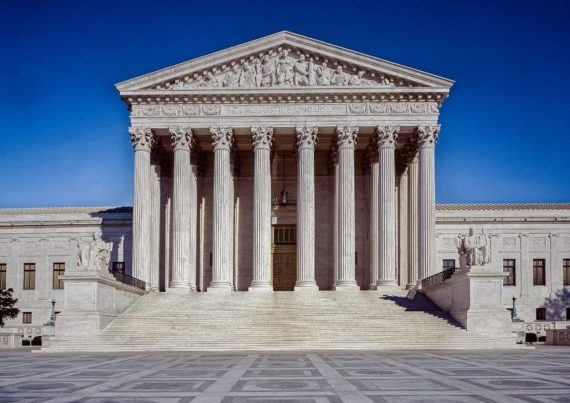This piece was originally published at Reckonin.com
America will never come right until it gets right with Lincoln. He was not a saint who saved the Union and freed the slaves. He was a pathologically ambitious man who stumbled into the bloodiest war in American history, freed the slaves in the most destructive possible way, and cost the lives of many Northerners by his bad military decisions. He did not save the Union but turned America into an empire with an unappealable central authority, with crony capitalism installed as its predominant feature of government.
Now I don’t mind if you like Lincoln and are happy with what he did and regard his deviousness as great statesmanship. But let’s cut out the sainthood bit which distorts our understanding of our national history with false righteousness.
Britain and France have had civil wars and revolutions. People still have sympathy with one side or another, but they don’t claim that they are basking in righteousness from the cause they favour. Only in the U.S. do we have the appeal to sainthood for one side. History is more complicated than that.
Kevin Orlin Johnson has done good work in bringing Lincoln into realistic focus. His book The Lincolns in the White House: Slanders, Scandals, and Lincoln’s Slave Trading Revealed provided us with all sorts of information that we did not know, some of it rather seamy. Lincoln did indeed sell slaves inherited from his wife’s family.
Johnson’s latest, Nance, a Girl of Color and Her Lawyer Abraham Lincoln, gives us a lot more context for Lincoln. (Pangaeus Press.) Supposedly slavery was not legal in the Illinois of Lincoln’s time. But no free black person could stay in the State for more than 30 days without punishment. Lincoln never objected to this. In fact, there were a great many African slaves labouring in Illinois. It was simple to move slaves to Illinois, pay a dollar to a public official, and put African Americans under indenture for up to 99 years. The general attitude of many Illinois whites was brutal and exploitive toward black people.
Johnson’s book is centered around the moving case of Nance, an African American who was born free. Her parents were indentured but no indenture was ever established for her. She was raised and sheltered by a white family from Kentucky, learned reading and math, was treated with affection, and became a major manager in the master’s business.
Bad people tried to seize her on an imaginary indenture. Her young lawyer Abe Lincoln bungled the case and she lost her freedom. His senior partner, Southern-born John Todd Stuart, saved her on appeal.
Johnson writes a story in which known facts, which are few, are enhanced by the imagination of a historian and fine writer who is immersed in the time and place about which he writes. Lincoln’s Springfield, Illinois, was a much uglier place than the ideal America that we are shown in book and film fantasies.







No, you can’t touch Lincoln. I spent the weekend with the self-righteous spittin’ at me for daring to suggest Lincoln was precipitous and intent on aggression leading to Sumter. I didn’t even mention deviousness. As shown in the public record, subsequent to Lincoln’s inauguration, Winfield Scott recommended that evacuation would “render cordial adherence to the union perpetual”. Secretary of War Cameron and Generals Scott and Totten, charged with resupply, warned it would be “commencement of war” and “inevitably insured collision”. Advisor Montgomery Miegs later wrote he convinced Lincoln who “immediately ordered reinforcement of Ft. Sumter… it was an irrevocable decision that the Union be maintained by force of arms”. My only task was picking from reams of witness testimony available.
My original question to my friends was, given there was real sentiment for reunification since the seventh and last state seceded in February and Sumter was a pathetic affair causing no casualties, why didn’t Lincoln wait a week, two weeks, six months, a year for cooler heads to prevail? The only thing at risk was revenue. The question was dismissed out of hand and I was accused of “rewriting history” No, you can’t touch Lincoln.
“No, you can’t touch Lincoln. I spent the weekend with the self-righteous spittin’ at me for daring to suggest Lincoln was precipitous and intent on aggression leading to Sumter.’
“Been there, done that,” I believe is the modern quip.
I have had those (much younger than me) absolutely protest that Lincoln probably saved the world by keeping “The” United States together.
You can only shake your head in despair at such pseudo-intellectual brainstorming. It is really pitiful.
Seems like there should be a book length study on Lincoln and his approach to Sumter, doesn’t it? I thought, Maybe there has been, so I looked on Amazon and found a half dozen titles, some fairly recent. Reading their blurbs and reviews, sure enough – every one features The Trials, Tribulations and Statesmanship of Our Hero, Abraham Lincoln. He really can’t be touched.
Maybe one of the writers passing through Abbeville will take up the task.
When you begin with Lincoln, then everything that follows is wrong.
I love Mr. Wilson’s work.
Clyde Wilson is a Southern jewel.
With a verbal sword and The Bonnie Blue Flag!
Ol’ Dishonest Abe was a dictator.
He destroyed the US Constitution and, in essence, installed martial law, outlawed freedom of the press, suspended habeas corpus, and hated Blacks, never freeing one slave, but setting the table for a disastrous war that destroyed the South and its citizens, Black and White, without remorse.
Kennedy’s book on Reconstruction adresses a lot of that issue, and more. One of the very BEST books on the subject.